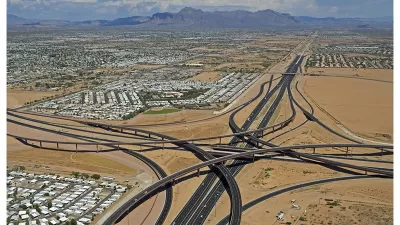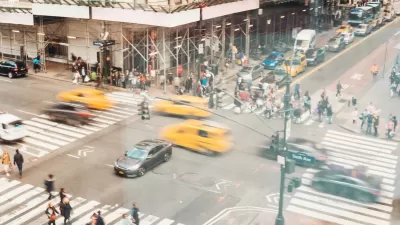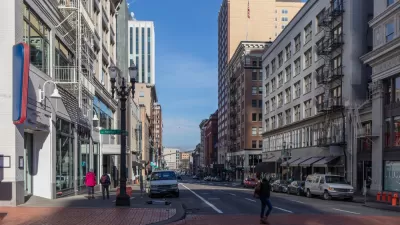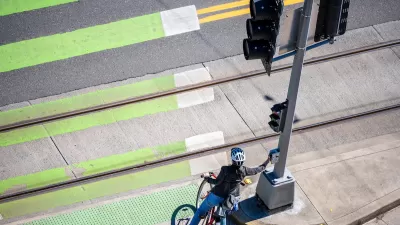"With this campaign, we’re making clear that zero is the only acceptable number of deaths on our roads."

The U.S. Department of Transportation announced October 5 that it has committed $1 million a year for the next three years to a national Vision Zero program.
The campaign relies on a large coalition of safety advocates, data and behavioral scientists, community planners, policy analysts, and officials at all levels government.
Though a target date to reach zero traffic deaths nationwide is not specified, the plan identifies short-term actions in the service of long-term goals. From the press release:
Our short-term focus is to promote innovative strategies that save lives over the next three to five years. Those strategies include improving seat belt use and motorcycle helmet; redesigning streets; truck safety; and leading driver behavioral change campaigns.
In the long term, our efforts will focus on overall system design, new vehicle technology, enforcement, and behavioral safety. With the rapid introduction of automated vehicle technologies that may prove to be a road safety game changer, our goal of zero deaths is achievable in our lifetimes.
The DOT will also be awarding competitive grants to national organizations to implement “innovative strategies” to reduce traffic deaths.
FULL STORY: Moving Forward on the Road to Zero Traffic Fatalities

Planetizen Federal Action Tracker
A weekly monitor of how Trump’s orders and actions are impacting planners and planning in America.

Maui's Vacation Rental Debate Turns Ugly
Verbal attacks, misinformation campaigns and fistfights plague a high-stakes debate to convert thousands of vacation rentals into long-term housing.

San Francisco Suspends Traffic Calming Amidst Record Deaths
Citing “a challenging fiscal landscape,” the city will cease the program on the heels of 42 traffic deaths, including 24 pedestrians.

Defunct Pittsburgh Power Plant to Become Residential Tower
A decommissioned steam heat plant will be redeveloped into almost 100 affordable housing units.

Trump Prompts Restructuring of Transportation Research Board in “Unprecedented Overreach”
The TRB has eliminated more than half of its committees including those focused on climate, equity, and cities.

Amtrak Rolls Out New Orleans to Alabama “Mardi Gras” Train
The new service will operate morning and evening departures between Mobile and New Orleans.
Urban Design for Planners 1: Software Tools
This six-course series explores essential urban design concepts using open source software and equips planners with the tools they need to participate fully in the urban design process.
Planning for Universal Design
Learn the tools for implementing Universal Design in planning regulations.
Heyer Gruel & Associates PA
JM Goldson LLC
Custer County Colorado
City of Camden Redevelopment Agency
City of Astoria
Transportation Research & Education Center (TREC) at Portland State University
Jefferson Parish Government
Camden Redevelopment Agency
City of Claremont





























